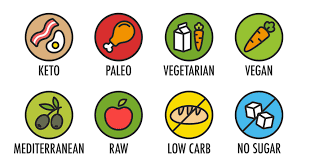
Importance Of Diet In Yoga
A healthy diet is essential for optimal physical and mental health. Eating a balanced diet that includes a variety of foods helps to ensure that your body gets all of the nutrients it needs for energy, growth, and repair. Eating a balanced diet can also help to reduce the risk of certain chronic health conditions such as heart disease, stroke, obesity, and type 2 diabetes. Eating a healthy diet can also help to improve mood, concentration, and energy levels.
Importance of diet in meditation and asana
Diet plays an important role in meditation and asana practice as it provides the body with the nourishment and energy it needs to sustain a healthy lifestyle. Eating a nutritious diet helps to support the body's natural healing process, provides energy for physical activity, and helps to ensure that the body is functioning optimally.
A balanced diet of whole grains, fresh fruits and vegetables, healthy proteins, and healthy fats can help to fuel the body and mind for meditation and asana practice. Eating a balanced diet can also help to reduce stress and improve mental clarity, two important components for successful meditation and asana practice. Furthermore, healthy nutrition can help to reduce inflammation and improve the body's ability to heal, which can help to improve overall well-being.

Types of diet in asana
1. Ayurvedic Diet: This diet focuses on balancing the mind, body, and spirit with the help of a special diet. It focuses on eating foods that are specific to individual body types, or dosha, and the season.
2. Vegan Diet: This diet is plant-based and does not include any animal products or by-products, such as dairy, eggs, or honey.
3. Vegetarian Diet: This diet includes plant-based foods such as fruits, vegetables, grains, legumes, nuts, and seeds, but also includes dairy and eggs.
4. Macro Diet: This diet focuses on balancing the macronutrients (carbohydrates, protein, and fat) in the diet and consuming them in the right proportions.
5. Raw Food Diet: This diet focuses on eating uncooked and unprocessed foods, such as fruits, vegetables, and nuts.
6. Gluten-Free Diet: This diet excludes all foods that contain gluten, a protein found in wheat, barley, and rye.
7. Clean Eating Diet: This diet focuses on eating whole, unprocessed foods that are free of additives and preservatives.
Diet and Yoga
Diet and yoga are two important components of an overall healthy lifestyle. Diet provides the body with the necessary fuel and nutrition it needs to function optimally, while yoga helps to improve flexibility, strength, and balance. When combined, these two practices can help to improve overall health, reduce stress and improve overall well-being.
A healthy diet should consist of nutrient-rich whole foods such as fruits, vegetables, whole grains, lean proteins, and healthy fats. Eating a balanced diet helps to ensure that the body is getting all of the essential vitamins, minerals, and nutrients it needs. Yoga can help to reduce stress, improve posture and flexibility, and improve overall well-being.
It can also help to reduce anxiety and depression, improve circulation and oxygenation, and enhance strength and balance. Combining a healthy diet with regular yoga practice can help to improve overall health, reduce stress and improve overall well-being.
All the data on Our website has been reviewed and approved by healthandbeautylistings.org - Yoga Listings
How to maintain diet with yoga courses
1. Eat Healthy: Make sure to eat nutritious and healthy food. Avoid junk and processed food and opt for fresh fruits, vegetables, and whole grains.
2. Exercise Regularly: Yoga is an excellent way to stay fit and healthy. Take up a yoga course to help you maintain your diet and stay in shape.
3. Avoid Stressful Situations: Stress can lead to unhealthy eating habits. Try to avoid stressful situations and practice yoga to help you relax and manage your stress levels.
4. Get Enough Sleep: Lack of sleep can lead to cravings and unhealthy eating habits. Make sure to get enough sleep to help you stay on track with your diet.
5. Drink Plenty of Water: Drinking water is essential for staying hydrated and maintaining a healthy diet. Drink at least 8 glasses of water every day.


